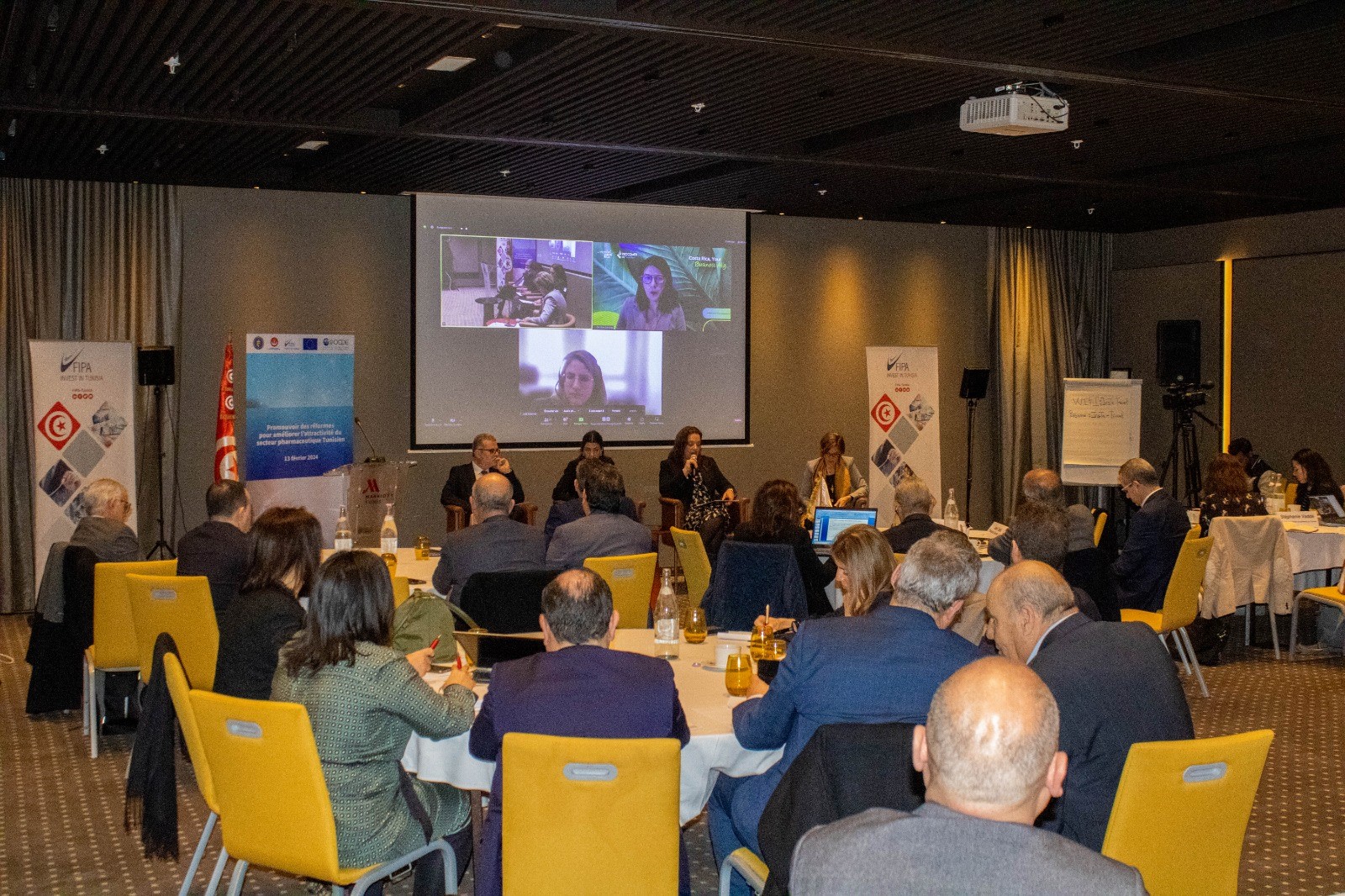Promoting reforms to improve the attractiveness of the Tunisian pharmaceutical sector - EU-OECD Public-Private Dialogue

Due to a growing market and a strategic location linking Europe and Africa, it is necessary to advance investment opportunities in Tunisia's growing pharmaceutical sector. This is why the EU, the OECD, IFAP, TIA, the Ministry of Economy and the Ministry of Health organized a joint event on 13 February for a public-private dialogue on "Promoting reforms to improve the attractiveness of the Tunisian pharmaceutical sector", regrouping the major actors to shape the future of the pharmaceutical sector in Tunisia. This public-private dialogue is being organised as part of the EU-OECD programme on investment in the Mediterranean, which aims to support investment climate reforms in order to promote sustainable growth and the creation of decent jobs in the Southern Mediterranean.
According to data from the Tunisia Investment Authority, during the 2019-2023 period, the sector had seven new investment projects totalling MDT 250 (around EUR 74 million), creating 848 jobs. With considerable assets such as its strategic location between Europe and Africa, its skilled workforce and numerous companies active in the production of pharmaceutical products, Tunisia has the important qualities to attract investors. To do so, it will be essential to further improve the business climate in the sector and speed up the introduction of reforms. The establishment of a new Medicines Agency, to which Tunisia is committed, will be essential if the many challenges facing the sector are to be met, including reducing the time taken to obtain Marketing Authorisation and improving the mechanism for setting prices.
The discussions explored promising avenues for action:
- Tunisia-Europe-Africa cooperation to strengthen the resilience of medical supply chains.
- FDI promotion tools and financing mechanisms.
- International best practice for the creation of a National Medicines Agency, with expertise from countries such as Portugal, Slovenia and Saudi Arabia.
- Protection of intellectual property and technology transfer.
More than 80 participants from various ministries, the private sector, international organisations and EU embassies contributed to this crucial dialogue. The resulting recommendations propose concrete actions to promote investment, strengthen the business climate, encourage R&D and ensure the enforcement of intellectual property rights. The work is far from being over. Following this dialogue, and as part of the EU-OECD Mediterranean Investment Programme, the OECD and the EU will continue to work with Tunisia on a study on the quality of FDI in Tunisia, which should be presented at the next Investment Forum in Tunisia.
